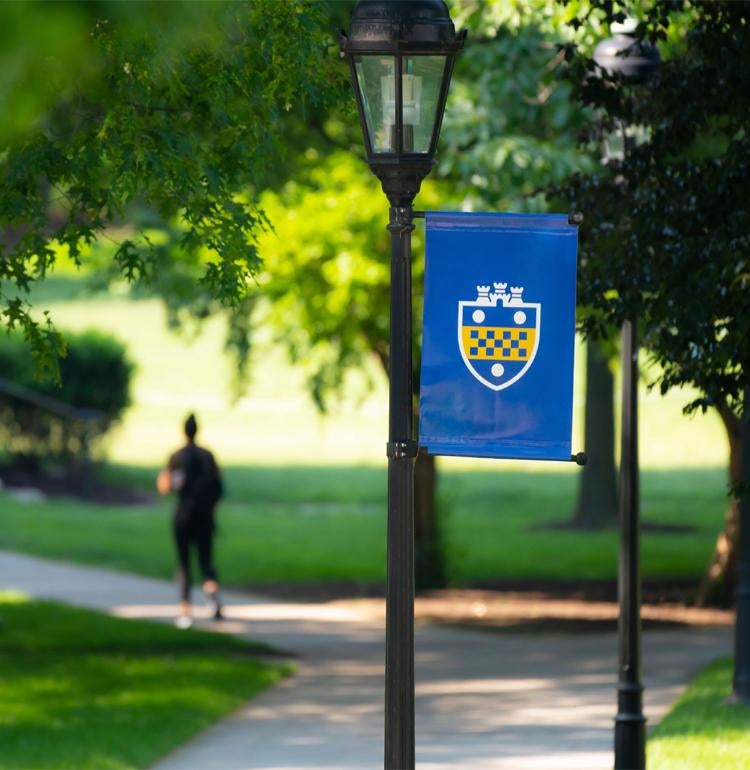The University of Pittsburgh’s School of Social Work offers an advanced standing enrollment status for graduate students entering the Master of Social Work (MSW) degree program.
Qualifying for advanced standing enrollment allows students to use their foundational social work education to expedite their MSW while receiving the quality training and hands-on practicum experience they need to excel as social workers.
What Is an Advanced Standing MSW?
Advanced standing is an enrollment status granted to students who have completed a social work degree within the last ten academic years from a Council on Social Work Education (CSWE) Board of Accreditation- accredited undergraduate program.
When granted advanced standing, students receive credits during the admission process based on their previous academic experience and performance. This allows graduate students to accelerate their MSW degree and save money while gaining valuable classroom and practicum experience.
How Long Will It Take to Earn An MSW With Advanced Standing?
Students who are granted full advanced standing — total credits — upon entrance into the MSW program can finish their graduate degree with a minimum of 39 credits. Students who receive advanced standing have two full-time enrollment options — 12 months (Fall, Spring, Summer) and 16 months (Fall, Spring, Fall). These options give students the flexibility to fit their graduate education into their busy schedules.
Graduate students entering the MSW program with advanced standing can receive up to 15 academic credits and six practicum education credits. An applicant’s eligibility for advanced standing credits depends upon their undergraduate coursework and how it compares to the MSW degree’s generalist curriculum courses.
Advanced Standing MSW Requirements
To qualify for advanced standing in Pitt’s MSW program, prospective students must meet specific criteria.
Students must have earned a social work bachelor’s degree from a CSWE-accredited program within the past ten academic years. To earn up to 15 academic credits, students must have earned a B or higher in previous coursework. The relevancy of undergraduate coursework will also be compared to the MSW generalist courses to determine how many advanced standing credits a student receives.
Those enrolled in the advanced standing MSW may also receive up to six practicum education credits if they accumulated 400 hours of practicum experience and achieved a passing grade of B or higher during their undergraduate program.
Students from outside the United States may also qualify for advanced standing if they have earned a bachelor’s degree in social work from an undergraduate program recognized by the Council on Social Work Education’s International Social Work Degree Recognition and Evaluation Service.
MSW Enrollment Options
Students who qualify for advanced standing status can pursue their degree full or part-time, depending on what suits their schedule and learning style.
View sample advanced standing MSW courses of study for Direct Practice or COSA.
Sample 12-Month MSW Degree With Advanced Standing — Direct Practice Course of Study
| Term | Course | Course Name | Credits |
|---|---|---|---|
| Fall Term (First Year) | SWINT 2082 | Models of Intervention (Direct Practice Skill Elective) | 3 |
| Fall Term (First Year) | SWBEH | Second-Level Human Behavior (2062/2065/2066/2077) | 3 |
| Fall Term (First Year) | General Elective | 3 | |
| Fall Term (First Year) | SWINT 2099 | Specialized Practice Practicum | 6 |
| Spring Term (First Year) | SWINT 2082 | Advanced Direct Practice – 2031 or 2032 (Skill Elective) | 3 |
| Spring Term (First Year) | SWRES | Second-Level Research (2033/2045/2051) | 3 |
| Spring Term (First Year) | SWINT | Direct Practice Skill Elective | 3 |
| Spring Term (First Year) | SWINT 2099 | Specialized Practice Practicum | 6 |
| Fall Term (Second Year) | SWWEL | Second-Level Welfare/Policy (2039/2056/205/2059) | 3 |
| Fall Term (Second Year) | SWINT | Direct Practice Skill Elective | 3 |
| Fall Term (Second Year) | SWINT | Direct Practice Skill Elective | 3 |
Sample Part-Time MSW Degree With Advanced Standing—Direct Practice Course of Study
| Term | Course | Course Name | Credits |
|---|---|---|---|
| Fall Term (First Year) | SWINT 2082 | Models of Intervention (Direct Practice Skill Elective) | 3 |
| Fall Term (First Year) | General Elective | 3 | |
| Spring Term (First Year) | SWBEH | Second-Level Human Behavior (2062/2065/2066/2077) | 3 |
| Spring Term (First Year) | SWWEL | Second-Level Welfare/Policy (2039/2057/2956/2059) | 3 |
| Summer Term (First Year) | SWINT | Direct Practice Skill Elective | 3 |
| Summer Term (First Year) | SWINT 2099 | Specialized Practice Practicum | 3 |
| Fall Term (Second Year) | SWINT | Direct Practice Skill Elective | 3 |
| Fall Term (Second Year) | SWINT 2099 | Specialized Practice Practicum | 3 |
| Spring Term (Second Year) | SWINT/SWRES | Direct Practice Skill Elective or Second-Level Research | 3 |
| Spring Term (Second Year) | SWINT 2099 | Specialized Practice Practicum | 3 |
| Summer Term (Second Year) | SWINT/SWRES | Direct Practice Skill Elective or Second-Level Research | 3 |
| Summer Term (Second Year) | SWINT 2099 | Specialized Practice Practicum | 3 |
| Fall Term (Third Year) | SWINT | Direct Practice Skill Elective | 3 |
Apply for Advanced Enrollment
Advanced standing enrollment empowers you to save time and money as you pursue your MSW degree. Ready to begin? Review MSW admission requirements, or start your application today!
